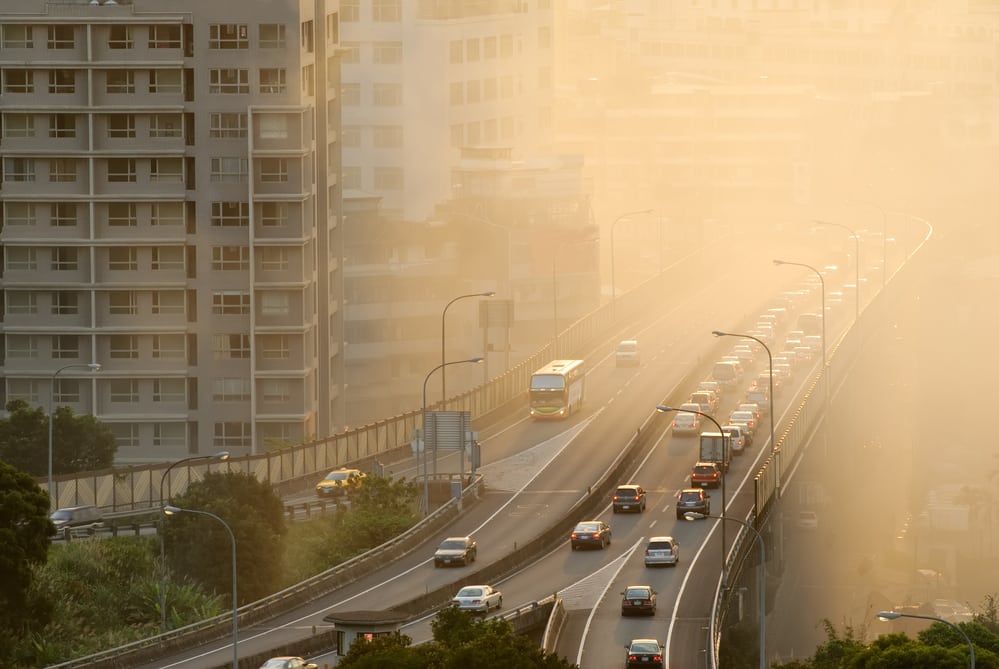Several months after the onset of the COVID-19 pandemic, many journalists began reporting on the fact that, due to reduced levels of transportation, lockdowns were leading to reduced air pollution. This news was celebrated, as we’ve known for decades that air pollution is detrimental to human health. However, there is also a troubling connection between air pollution and COVID-19 deaths. Back in April, researchers reported that high levels of air pollution correlated to a higher risk of dying from COVID-19. Why does air pollution impact people suffering from COVID-19, and how can we mitigate the adverse effects?
Inspired by the report released in April, a team of researchers began exploring the correlation between air pollution and COVID-19 on a global scale. Their study, which was published in Cardiovascular Research on October 26, 2020, revealed that fine particulate matter (defined as anything smaller than 2.5 micrometers) has increased the risk of deaths from COVID-19 by 15 percent globally. In some specified areas, the link was more lethal. For example, fine particulate matter increased the risk of deaths from COVID-19 by 27 percent in East Asia.
Why Is Air Pollution Increasing COVID-19 Deaths?
When humans spend time in polluted environments, they inhale tiny emissions particles that can damage their respiratory health. Once these particles have been inhaled and deposited in the lungs, the damage is done. Smaller particles are more dangerous, as they can travel further down into the respiratory system. This can lead to oxidative stress, an inflammatory response, or even the activation of apoptosis.
Short-term exposure to air pollution can trigger acute irritation of the respiratory system, causing the person to cough. Long-term exposure is far more detrimental and has been linked to several chronic conditions, including chronic obstructive pulmonary disorder (COPD), heart disease, and cancer. These illnesses are also preconditions that increase one’s risk for developing a severe case of COVID-19 (source).
How can cities with high levels of air pollution reduce humans’ exposure to these dangerous particles, and thus reduce the risk of COVID-19 deaths? According to one of the study’s researchers, Jos Lelieveld, an atmospheric chemist at the Max Planck Institute for Chemistry, the solution is simply to clean the air. He recommends that these places embrace cleaner fuel sources and cleaner fuels, which could also help the climate by lowering levels of greenhouse gases. As the study concludes, “Our results suggest that air pollution is an important cofactor increasing the risk of mortality from COVID-19. This provides extra motivation for combining ambitious policies to reduce air pollution with measures to control the transmission of COVID-19.”
Are you looking for a CRO to assist with your preclinical or clinical drug development related to the novel coronavirus or COVID-19? QPS has CLIA-certified and GLP-compliant laboratories ready to fast-track your novel coronavirus and COVID-19 RT-qPCR/QPCR and Serological Assays and vaccine development programs. Since 1995, QPS has provided discovery, preclinical, and clinical drug development services. An award-winning leader focused on bioanalytics and clinical trials, QPS is known for proven quality standards, technical expertise, a flexible approach to research, client satisfaction, and turnkey laboratories and facilities. For more information, visit www.qps.com/coronavirus or email covid19study@www.qps.com.





